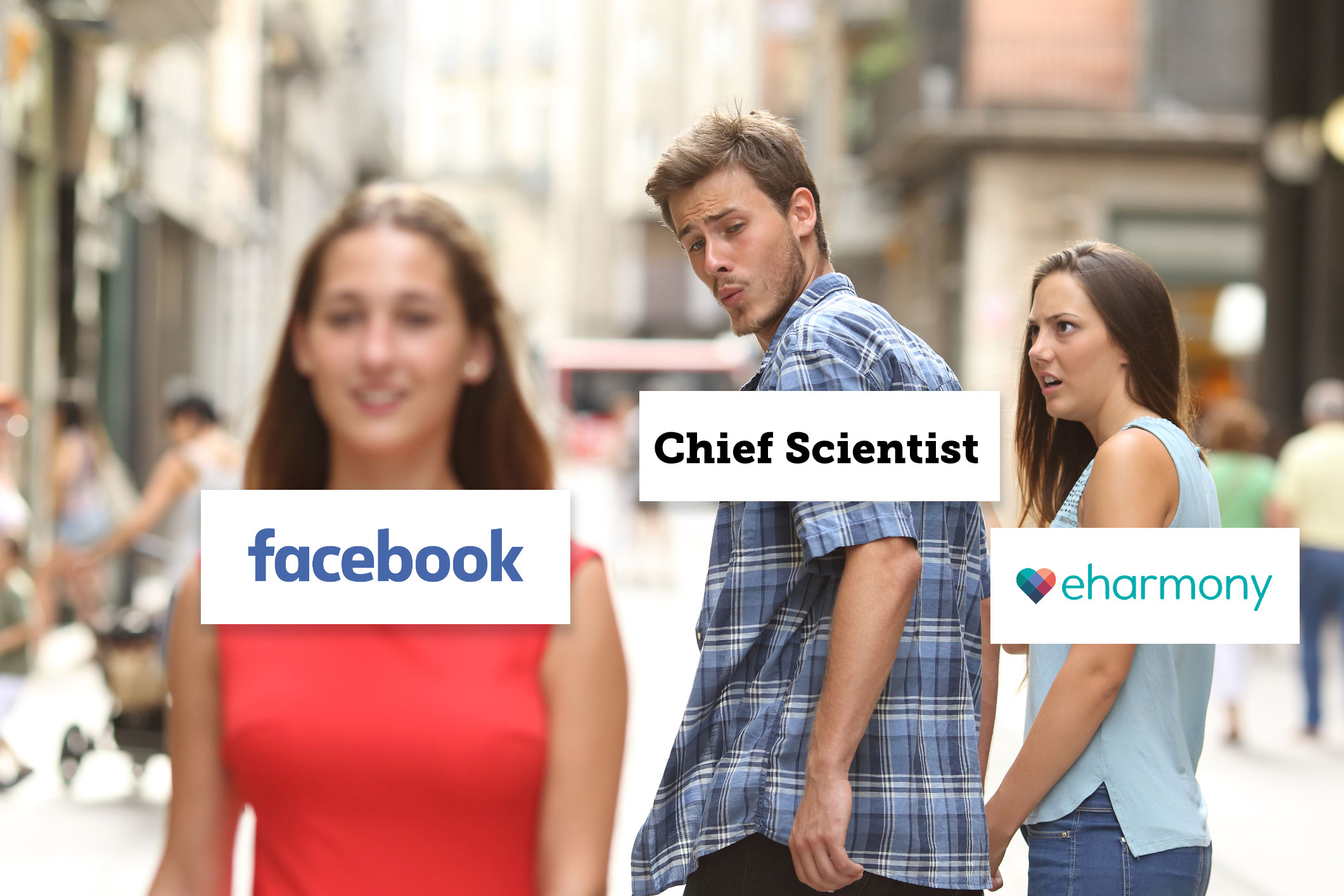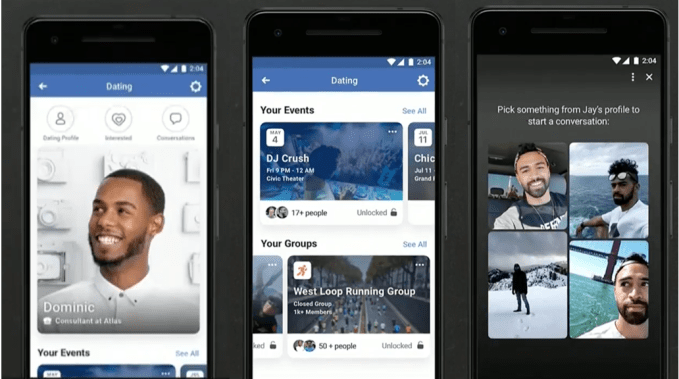
Facebook hired eHarmony’s chief scientist… but not for its new dating feature (Updated)
One of “the worlds biggest” patches of commodity news at Facebook’s F8 developer conference this week was the announcement that Facebook will soon turn on a brand-new dating feature.
It has also softly made a hire that points to its growing interest in developing more specific uses of its data, although not for the dating peculiarity exclusively. Dr Steve Carter, a data scientist who helped motif and construct the psychometric and relationship mannequins that grew the basis of eHarmony — the dating place where he was a founding member and worked for virtually 20 times — is working at the social network, out of its offices in Los Angeles.
But Facebook has confirmed to us that Carter is not working on the brand-new date work, and the company declined to say what he is doing.
His LinkedIn sketch notes that he participated Facebook in August 2017. Back in January, there was a brief mention of Carter doing work for Facebook, but at the time it was not known that he’d actually left eHarmony month ago that. It seems that he’s only recently updated his chart with that datum, coinciding with Facebook now finally meeting its date meanings public.
Carter’s profile on LinkedIn describes him as a data science director, “helping Facebook get even better at building meaningful and advantageous connections between people and communities.”
His expertise lies firmly in house matchmaking algorithms. Before this, he accommodated a number of roles at eHarmony, starting as a research commentator on the founding crew in 1999, before eHarmony had even launched, running his mode up to principal scientist at the company, which has had backing from the likes of Sequoia and TCV in its history.
In that time, he too picked up four patents in online social matchmaking, including one in matters of employment parallel. Those patents are all owned by eHarmony.
Facebook, which is still feeling the hot from spats that have arisen around some of its more scaled-up business like programmatic pushing and viral government content, has changed its focus to parishes, and likewise inquiring more direct and discreet channels that its social graph is also possible leveraged. Dating is one of the more obvious an applicant for that concept.
“One in three wedlocks in the US start online, ” CEO Mark Zuckerberg said in his presentation F8 this week. “[ But] today we haven’t even improved any facets to help people find marriages, ” he read. “There are 200 million people on Facebook who register themselves as single, so clearly there is something to do here. And if we’re concentrate on helping people improve meaningful relations then this is perhaps the most meaningful one of all.”
There hasn’t been too much written about how eHarmony’s algorithm runs, but in a lecture in May 2017( two months ago officially leaving eHarmony ), Carter opened up about it to describe it a little.
It turns out that while there may be a lot of questions that get asked of a user’s penchants, eventually eHarmony threw out everything except for the most extreme likes or disfavors in order to avoid creating what Carter refers to as “a universe of one.”
This is an interesting idea when you apply it to Facebook, and you can see what the pull might be for a data scientist in wanting to use the pulpit to build a dating assistance.( That’s to say nothing of the fact that Facebook sort of started as a dating website of sorts, where people prominently exposed their relationship distinctions on their profile sheets, disseminating “it’s complicated” as the short story for all of love’s actual complications .)
As we memorandum yesterday, when Facebook launches its service, it wants to make it as noninvasive as possible.
You get the option to create a dating sketch. And that profile won’t be visible to your best friend; merely to others who have also opted in, and only if they fit your criteria and parallel your chart, and only if they are not already your best friend and alliances on the network.
Applying Carter’s concept of pairing data between users on eHarmony, Facebook once has a huge trove of information about you, based on what the hell are you positions and like and share. Facebook can therefore make its dating profile investigates — and its need to rely on them — less ponderous.( That format has the potential to add a good oppose to other areas like Tinder, which require you to swipe across numerous charts to compose shortlists of people who might are compatible with you .)

In hiring Carter, Facebook has picked up someone who has worked on relationships beyond those you forge through dating.
Last year, his former employer eHarmony divested a business that Carter had developed announced Elevated Careers, which was acquired by a startup announced Candidate.Guru.
Elevated Careers reverberates a lot like a date service, except with ’employer’ and ’employee’ ousting the two people looking for love, which prompts you just how same the car-mechanics can be for any matching service( something Facebook is also essential realise ).
It lets an employer assess a possible employee’s harmony by parallelling up attributes of the candidate’s temperament and appraises to those of his/ her possible manager, as well as to the hiring organization’s culture. It also has algorithms that tell you how well a candidate’s skills and background are suited to a specific profession. Yielded Facebook’s interest and work in recruitment and job detecting, it will be interesting to see how and if that commodity too comes developed.
Along with Steve Carter, we’ve to seek to figure out whether Facebook has been hiring other people to build a relationships crew that it is able to exercise with improving out dating and other produces. It is about to change that there is definitely some crossover of employees who have worked at different dating places over the last several years, who are now at Facebook — but most probably, this is mostly a product of the general churn that you get in the tech life, where people are often prancing from one position to another.
But a few other hires stand out. Exactly this month, Facebook happened to hire Badoo’s heads of state of portable engineering, who appears to be based out of London. This sales conductor for “e-commerce and dating” started his new persona in January 2018, working out of Paris( so I suspect there is already some early considering for how to build this as a business too ). There are two recent hires from Tinder, one in Los Angeles and one in Menlo Park. And the former data result from Hinge likewise joined in the last six months, likewise based in Los Angeles, and now working in “scaled marketing.”
Story informed with Facebook comment, and to sanction he is not working on the brand-new dating feature
Read more: feedproxy.google.com

